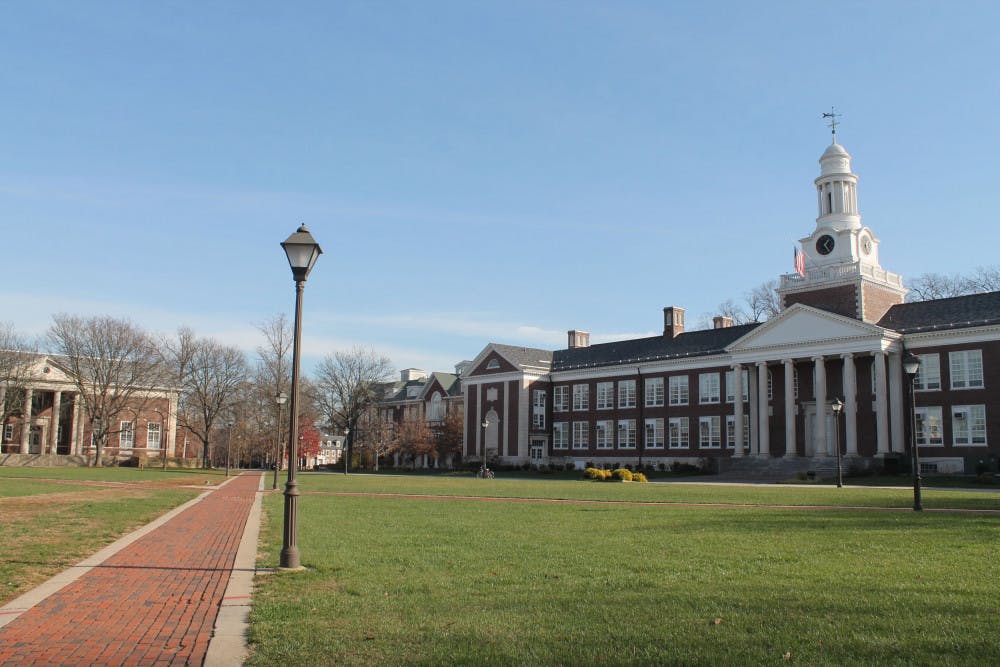By Elise Schoening
Review Editor
What happens when you can’t get into the college courses necessary to prepare you for graduate school and a subsequent career?
Students with plans to attend medical school after completing their undergraduate degree in a discipline outside of the hard sciences have asked themselves this question far too many times, as many of their required courses are reserved strictly for those within the science department. After years, these students will tell you they’ve learned the hard way that there’s nothing you can really do but wait — that is, join a waiting list as soon as possible and hope that a seat will open up once the hold for non-science majors has been lifted.
Junior psychology major Nishawn Rahaman is all too familiar with the arduous process of registering for pre-med classes at the College.
“Every semester, I struggle to get into the sciences courses that are required for the pre-med track,” Rahaman said. “I think this is an issue on campus because the school does not recognize non-science pre-med students. Therefore, they do not cater to us. As a result, we go through a lot more stress than the average student when scheduling our classes.”
Rahaman has gotten used to the routine of waiting until the end of formal registration to sign up for these courses. This flawed process allows students who have earned less credit, such as sophomores and even freshmen, to enroll in pre-med courses before their peers, although the underclassmen have more flexibility when it comes to scheduling.
Rahaman is not alone in her frustration. This issue reemerges for all non-science majors every time the dreaded registration period rolls around, which is already stressful enough for the average college student.
“I’ve gotten a great education here, but it’s frustrating,” senior psychology major Melanie Orr said. “It’s stressful signing up for these courses, but mind you, these are some of the most stressful courses (at the College).”
The prevalence of this issue may be due in part to the fact that students today do not have to major in the sciences in order to go on to medical school. In fact, many graduate schools encourage potential students to diversify their studies with other majors. As such, it is especially important that the requisite classes are open to students outside the science department and that the registration process is as simple as possible.
“I knew that being a science major would have made it easier for me, since all the pre-med courses are in the science department,” junior psychology major Arianne Ramos said. “But after I realized that I could major in literally anything and still take pre-med classes, I decided to pursue my interest in learning about human behavior with the psychology major.”
While Ramos said she does not regret her decision to major in psychology, she certainly has had to work a lot harder to stay on track for medical school. She listed 10 classes offered by the College that she had to fight for a seat in.
“The school tends to emphasize that we have the freedom to major in anything we want and still be pre-med, and yet, we encounter difficulty when we try to take these classes,” Ramos said. “I know that the science department does what it can semester to semester to accommodate the extra number of students who want to take these classes, in addition to those who need them for their major.”
With a swarm of students bombarding advisors’ offices each semester, it is safe to assume that the School of Sciences is well aware of this prevalent issue. What’s not clear, however, is whether or not changes can and will be implemented in the near future.
“The School of Science plans very carefully and works hard to accommodate all students who desire to take the school’s courses,” the Dean of the School of Science Jeffrey Osborn said. “Our top priority is to ensure that the students who have specific science and math courses as degree requirements get seats first, otherwise, these students will not be able to complete their majors in four years. As of this date, all students who placed their names on wait lists have been seated into the courses (for the spring semester).”
Of course, registration does not go this smoothly every semester, as there will not always be enough available seating to accommodate non-science majors. Orr explained that her peers on the pre-med track often cannot take specific science courses when needed and, as such, have had to stay for an extra semester at the College and even push back their Medical College Admissions Tests (MCATs).
“I know many people who have needed an extra semester or needed to take summer classes,” Orr said. “I’ve needed to take summer classes (myself).”
Still, Orr said she could see the value in the current system, flawed as it may be.
“It does make sense. Reserves make sense,” Orr said. “I’m not going to sit here and say it doesn’t get figured out, because it does get figured out if you’re persistent about it and down everyone’s throat like me, it’ll work out. But it shouldn’t be such a stress. I don’t know what the solution to this problem is. This is a problem above me that I wouldn’t be able to handle.”







